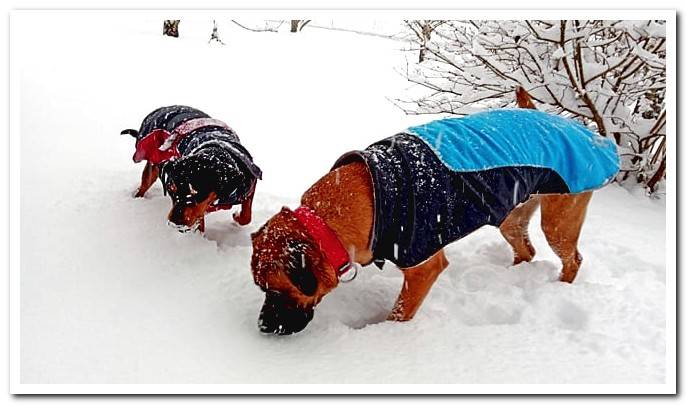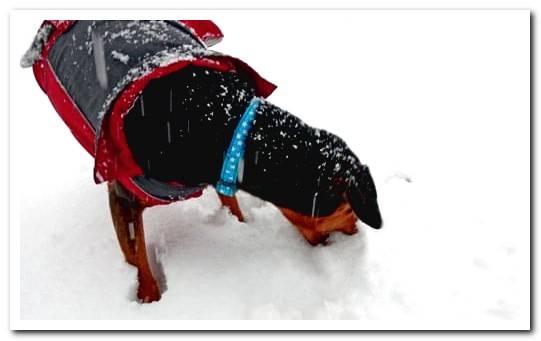
All dogs enjoy puppies playing in the snow, wallowing in the snow, chasing snowballs, and even eating snow nonstop, something they seem to love.
However, eating nine carries a series of fairly frequent dangers that few owners are aware of, something that can make their puppies easily ill showing symptoms even that same day.
From Dogsis we will explain everything you need to know about snow and dogs, so that you can enjoy it without problems or dangers.
You may also like: Symptoms that a dog has a cold
Index of contents
- 1 Why do dogs eat snow?
- 2 Snow and a Cold Stomach: Consequences
- 3 Should I shelter my dog to go to the snow?
- 4 Symptoms of danger in the snow
Why do dogs eat snow?
We must start remembering that dogs do not sweat, they cool by panting and removing excess heat through their tongue. So a dog that has run and played in the snow for a while will be overheated and quite relieved to eat snow.
Chasing snowballs is great, but even better is eating them. For them it is a game too, being able to chew the snow and swallow it without posing a serious risk to their health is a pleasure.
So the reasons why a dog eats nine are obvious, from play, from thirst, and from cooling down in hot weather. There are no other real reasons to justify such behavior.

Snow and a Cold Stomach: Consequences
Eating a little snow may not be a problem, but eating a lot of snow is a cooling of our dog’s digestive system, something that will have important consequences.
First of all, if our dog exceeds eating snow, we must remember that his desire to pee will increase dramatically in an hour or two, so even if we return home to rest … we will have to go out again after that time to urinate.
Another consequence of eating snow is the imbalance in the digestive tract, or what is the same, diarrhea. Yes, eating nine causes diarrhea in many dogs because their bellies get cold.
And last but not least, our dog can catch a cold or even show canine pneumonia symptoms if he already had a little cold. In these cases, when a dog is sick, it is advisable not to abuse the walks in the snow.
Should I shelter my dog to go to the snow?
Everything is relative, large and well-fed dogs do not need to bundle up since their coat of fur and their layer of body fat isolate them from the cold without major problems.
However, small dogs, those that are sick or those that are very sensitive to temperature changes (such as Chihuahuas), should be warm to avoid catching a cold or freezing.
You can get complete information from: Winter clothes for dogs
Another different thing is the waterproof layers, which we can use if it is snowing or raining to prevent our dog from getting soaked. They are quite useful because they protect a large part of your body.

Symptoms of danger in the snow
If we appreciate any symptoms that something is wrong with our dog, we must stop our walk in the snow and return home, where it can be warm and calm.
Some of the alarm symptoms are:
- Excessive tremors Our dog shivers non-stop due to excess cold.
- Rigidity and apathy , avoid walking, playing and moving in the snow because you don’t feel well.
- Does not obey and comes home , the dogs are very smart and if they are not comfortable, they will try to go home by themselves, where they feel safe.
- Pain when walking , since sometimes they suffer frostbite of the legs (which are very sensitive) and they walk with a limp or very slowly.
If you appreciate any of the symptoms, do not hesitate to go home and make your puppy comfortable and warm.
